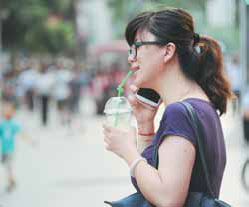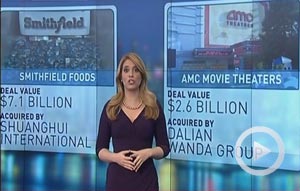Probes show dangerous straws on sale
Updated: 2013-07-16 07:14
By Zhou Wenting in Shanghai (China Daily)
|
||||||||
|
A recent probe found that 10 percent of drinking straws sold by Shanghai's Yu Garden wholesalers were up to standard. Zhong Yang / for China Daily |
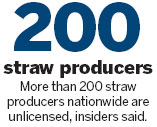
Products often have unhealthy materials that dissolve in drinks
Industry insiders have warned consumers to be careful when using drinking straws, as 90 percent in the Shanghai market did not meet quality standards, according to investigators.
The national standard on drinking straws requires a quality safety logo granted by the food quality and safety administration on package labels.
However, packing labels for straws produced by unlicensed workshops typically do not provide information of the materials used, or the manufacturer.
According to food experts, some straws could contain hazardous materials that can dissolve into drinks. Long-term use can cause harm to the digestive system, premature sexual development, infertility or even cancer.
An investigation team led by Lou Zhongping, who helped draft the standards on drinking straws, began inspections of wholesale stores in Shanghai's Yu Garden in early July and concluded only 10 percent of straws were qualified. Inspections also revealed forged quality safety logos.
"In wholesale stores, we found the logo was hard to read and could be erased easily," said Lou, who is also president of the largest manufacturer of drinking straws worldwide, Soton Daily Necessities.
Despite a request on July 3 by the market watchdog requiring that stores remove the straws from their shelves, a vendor said that the straws are still being sold.
Most of the quality safety logos are counterfeit, he added, showing a bag full of colorful drinking straws.
"Many beverage and milk tea stores as well as schools buy straws regularly, and we sell hundreds of packs every month," said the vendor, who only wanted to be identified as Chen.
In a beverage shop named Guoxiang in the Jing'an district, a manager surnamed Yang said he purchases straws from markets in Yu Garden, and has never been aware of the safety concerns.
Insiders said thick straws, such as those used for bubble tea, tend to be more at risk because they use more materials and are more expensive to make.
"The price of a qualified straw is around 0.1 yuan ($0.016), which is double or even triple the price of a substandard one," said Han Ying, business department manager of Shanghai Guanxuan, a company that makes household products.
"There is no threshold for producing inferior drinking straws as it's easy to attain recycled plastics, and anyone could start a business with several machines at home," she added.
There are five straw producers in Zhejiang province's Yiwu, an international trade hub that produces at least 90 percent of the straws in the Chinese market, but the number of unlicensed producers in the country is more than 200, insiders said.
The health supervision department in Changsha, Central China's Hunan province, issued a warning in May that some drinking straws might contain toxic substances after the findings of Lou's investigation.
zhouwenting@chinadaily.com.cn
(China Daily USA 07/16/2013 page6)
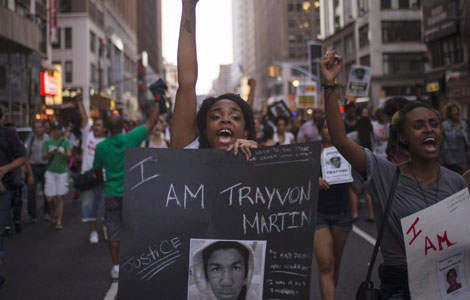
 Obama urges restraint amid protests
Obama urges restraint amid protests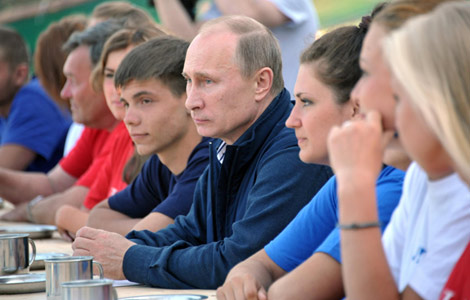
 Putin wants Snowden to go, but asylum not ruled out
Putin wants Snowden to go, but asylum not ruled out
 Apple to probe death of Chinese using charging iPhone
Apple to probe death of Chinese using charging iPhone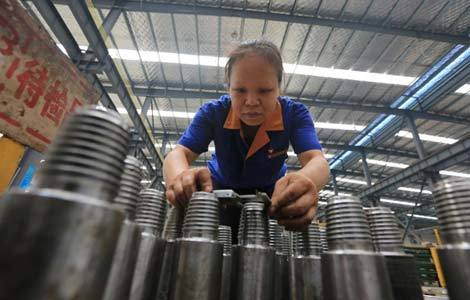
 Investment falters as industrial activity flags
Investment falters as industrial activity flags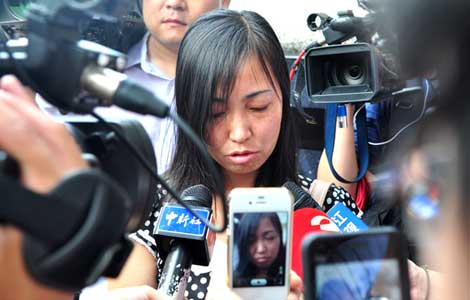
 Rape victim's mother wins appeal
Rape victim's mother wins appeal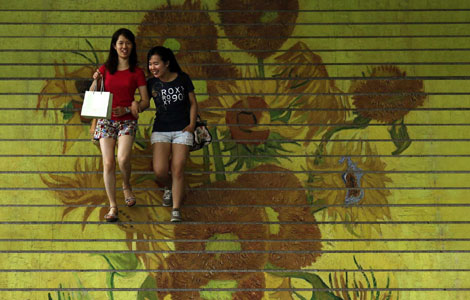
 Reproduction of 'Sunflowers' displayed in HK
Reproduction of 'Sunflowers' displayed in HK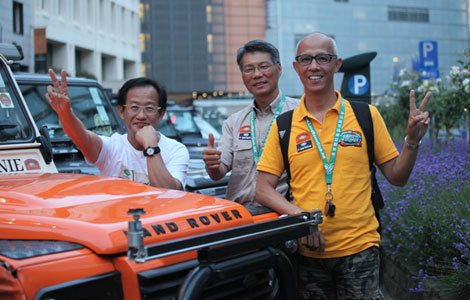
 Land Rover enthusiasts tour the world
Land Rover enthusiasts tour the world
 US star sprinter fails drug test
US star sprinter fails drug test
Most Viewed
Editor's Picks

|

|

|

|

|

|
Today's Top News
China calls for new talks on Iran nuclear issue
Global warming may largely raises sea level
Putin wants Snowden to go, asylum not ruled out
Top foreign study destinations for Chinese
Trailblazer reaches out to inmates on death row
Air crash payouts could differ
Cabinet promises more funds for smaller firms
Capital prison tests therapy on inmates
US Weekly

|

|
